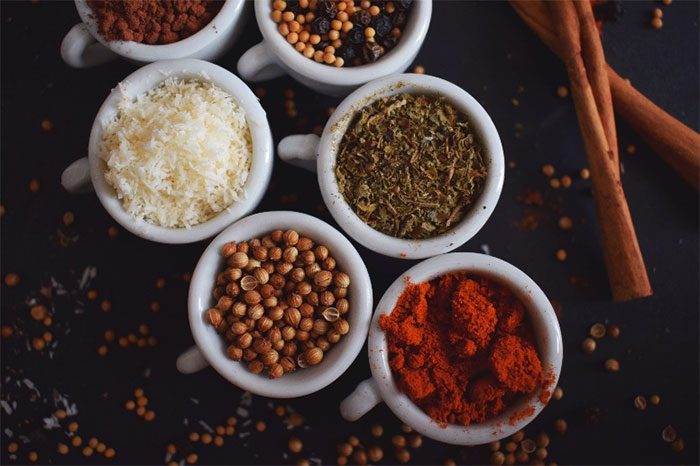Have you ever spent a lot of time and effort cooking, selecting a variety of seasonings, only to wonder why your dish is overly salty yet lacks the expected flavor and aroma? If so, you might be making some common mistakes outlined below.
To ensure your dishes are flavorful and well-seasoned, keep in mind these four mistakes and their corresponding tips for preparation and seasoning.
Incorrect Thawing of Meat
Many people often take meat out of the freezer, slice it, and cook it right away, believing that it will thaw completely while boiling. However, this is a common mistake. Meat that hasn’t thawed properly is difficult to cook evenly and absorb seasonings. As a result, the outside may overcook while the inside remains undercooked.

Home cooks need to completely thaw meat and fish before cooking. (Photo: Lucas Vinicius Peixoto).
Additionally, to shorten the waiting time, some families use hot water to thaw meat. This process can alter the meat’s texture and flavor, reducing its freshness and nutritional value.
Therefore, the correct method for thawing food is to allow it to gradually return to its original state. Cooks can place frozen meat in the refrigerator or run it under cold water until it softens. Using a microwave to defrost food is also a quick method that doesn’t compromise quality and flavor, and is widely adopted.
Marinating for Too Short or Too Long
Each type of food has its own texture and characteristics. Thus, the marinating time is a crucial factor that determines whether a dish will be flavorful and well-seasoned after cooking. You can refer to the marinating times for some common meats below.
Pork and chicken are tender meats that absorb flavors well and retain aroma effectively. For common dishes such as braising, sautéing, and frying, you should marinate for about 20-30 minutes. When grilling, marinating for 2-3 hours allows the seasonings to penetrate the meat thoroughly.
Meanwhile, the ideal marinating time for sliced beef, salmon fillets, cod, lobster, scallops, and oysters to absorb flavors evenly is approximately 15 minutes.
Improper Timing for Adding Seasonings
Using seasonings to flavor dishes can sometimes be a challenging task, as certain ingredients may lose their quality over long cooking times or even pose health risks. Therefore, you need to adjust the timing for adding seasonings accordingly.
For example, depending on the dish, salt can be added either before or during cooking. For braised dishes that require strong flavor without losing sweetness, it’s advisable to add salt during the marination process. For soups, wait until the sweetness from bones, meat, or fish is released before adding salt, preferably after the soup has just begun to boil.
Fish sauce has a distinct flavor and should not be cooked for long. For soups, you can add fish sauce to the pot and turn off the heat immediately.
When marinating for fried or grilled dishes, it’s best to use less sugar to prevent burning. If you want the dish to be sweeter, you can prepare a separate sauce or brush honey on it when it’s nearly done cooking.
Pay Attention to the Quantity of Seasonings

Seasoning “without consideration” can greatly affect health. (Photo: Andra Ion).
Mixing different spices without paying attention to the quantities or necessity can cause a dish to lose its distinctive flavor. For instance, a sweet and sour stir-fried squid dish should be seasoned to highlight the harmonious sweet aroma from fresh squid and vegetables, rather than being overwhelmed by the strong smell of fish sauce or the intense sweetness of white sugar added on impulse. Paying attention to the quantity of seasonings when seasoning also helps control sodium intake more effectively.
Sodium is a mineral that creates a salty taste and is present in many familiar foods and seasonings, such as salt, fish sauce, soy sauce, and seasoning powder. According to the Ministry of Health, an adult should consume no more than 2,800 mg of sodium per day to avoid the risk of chronic diseases. This is why you should abandon the habit of cooking and seasoning “as passed down by ancestors.”


















































